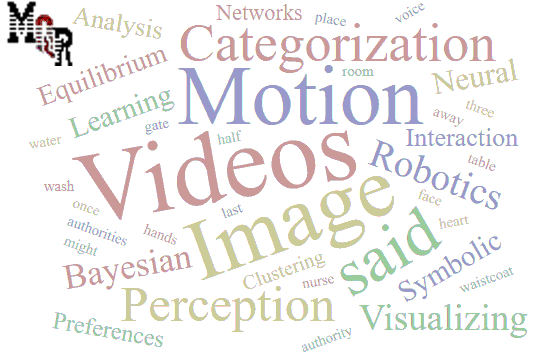Efectos farmacológicos sobre el sistema cardiovascular de los agonistas GLP-1
DOI:
https://doi.org/10.56048/MQR20225.8.2.2024.3591-3608Palabras clave:
Agonistas GLP-1; enfermedades cardiovasculares; diabetes mellitus tipo 2; protección cardiovascular; revisión bibliográficaResumen
Introducción: La incidencia de enfermedades cardiovasculares ha experimentado un incremento constante, constituyendo una causa principal de morbilidad y mortalidad globalmente. En este escenario, los agonistas del péptido similar al glucagón tipo 1 (GLP-1) se perfilan como una categoría prometedora de fármacos, no solo para el manejo glucémico en individuos con diabetes mellitus tipo 2 (DM 2), sino también por sus ventajas cardiovasculares.
Objetivo: Examinar y sintetizar los datos existentes acerca de los efectos de los agonistas GLP-1 en el sistema cardiovascular, identificando mecanismos subyacentes, beneficios potenciales e implicaciones clínicas.
Metodología: Se efectuó una revisión exhaustiva de la literatura, accediendo a repositorios de investigación científica tales como PubMed, Scopus y Web of Science, empleando palabras clave y términos MESH. Se seleccionaron estudios clínicos, metaanálisis y revisiones sistemáticas publicados en los últimos 10 años, tanto en inglés como en español.
Resultados: Los estudios revisados evidenciaron que los agonistas GLP-1 disminuyen de manera significativa el riesgo de afecciones cardiovasculares graves en individuos con DM 2, incluyendo infartos de miocardio, accidentes cerebrovasculares y muertes por causas cardiovasculares. Los mecanismos sugeridos abarcan la mejora del perfil lipídico, la disminución de la inflamación, la optimización de la función endotelial y efectos directos sobre el miocardio.
Conclusiones: Los agonistas GLP-1 representan una herramienta terapéutica valiosa en la gestión de pacientes con DM 2 y alto riesgo cardiovascular. Su capacidad para ofrecer protección cardiovascular más allá del control glucémico subraya la importancia de considerar estos agentes en el manejo integral de pacientes con estas condiciones
Descargas
Métricas
Cited
DOI: 10.56048![]()
Citas
Araujo Egas, C. M., Castillo Aldás, K. M., Londoño Mateus, J. C., & Revelo Benavides, K. M. (2021). Relación del síndrome metabólico en el riesgo de enfermedades cardiovasculares. Recimundo, 5(1), 120–128. https://doi.org/10.26820/recimundo/5.(1).enero.2021.120-128
Arbañil- Huamán, H. C. (2020). Agonistas del receptor de GLP-1. Diagnóstico, 59(2), 65–68. https://doi.org/10.33734/diagnostico.v59i2.219
Cardoso, G. A., Camiño, E. B., Dávila, G. I., & Domenech, P. F. (2024). Glucagon Like Peptide-1 (GLP-1) Agonists and delayed gastric emptying: Anesthetic and clinical considerations. Revista Chilena de Anestesia, 53(1), 28–32. https://doi.org/10.25237/REVCHILANESTV53N1-06
Dianti, Y. (2017). 済無No Title No Title No Title. Angewandte Chemie International Edition, 6(11), 951–952., 5–24. http://repo.iain-tulungagung.ac.id/5510/5/BAB 2.pdf
Aires, B. (2019). Agonistas del receptor de GLP-1 y enfermedad cardiovascular: de la fisiopatología a la clínica. 48, 7–10.
Piccini, S., Favacchio, G., Panico, C., Morenghi, E., Folli, F., Mazziotti, G., Lania, A. G., & Mirani, M. (2023). Time-dependent effect of GLP-1 receptor agonists on cardiovascular benefits: a real-world study. Cardiovascular Diabetology, 22(1), 1–14. https://doi.org/10.1186/s12933-023-01800-z
Iorga, R., Bacalbasa, N., Carsote, M., Bratu, O., Stanescu, A. M., Bungau, S., Pantis, C., & Diaconu, C. (2020). Metabolic and cardiovascular benefits of GLP‑1 agonists, besides the hypoglycemic effect (Review). Experimental and Therapeutic Medicine, 3, 2396–2400. https://doi.org/10.3892/etm.2020.8714
Ang, R., Mastitskaya, S., Hosford, P. S., Basalay, M., Specterman, M., Aziz, Q., ... & Gourine, A. V. (2018). Modulation of cardiac ventricular excitability by GLP-1 (glucagon-like peptide-1). Circulation: Arrhythmia and Electrophysiology, 11(10), e006740. https://www.ahajournals.org/doi/full/10.1161/CIRCEP.118.006740
Bethel, M. A., Patel, R. A., Merrill, P., Lokhnygina, Y., Buse, J. B., Mentz, R. J., ... & Holman, R. R. (2018). Cardiovascular outcomes with glucagon-like peptide-1 receptor agonists in patients with type 2 diabetes: a meta-analysis. The lancet Diabetes & endocrinology, 6(2), 105-113. https://www.thelancet.com/journals/landia/article/PIIS2213-8587(17)30412-6/fulltext
Davies, M., D’Alessio, D. A., Fradkin, J., Kernan, W. N., Mathieu, C., Mingrone, G., ... & Buse, J. B. (2018). Management of hyperglycemia in type 2 diabetes, 2018. A consensus report by the American Diabetes Association (ADA) and the European Association for the Study of Diabetes (EASD). Diabetes Care, 41(12), 2669-2701.
del Olmo-Garcia, M. I., & Merino-Torres, J. F. (2018). GLP-1 receptor agonists and cardiovascular disease in patients with type 2 diabetes. Journal of diabetes research, 2018. https://www.hindawi.com/journals/jdr/2018/4020492/
Drucker, D. J. (2018). Mechanisms of action and therapeutic application of glucagon-like peptide-1. Cell Metabolism, 27(4), 740-756.
Gerstein, H. C., Colhoun, H. M., Dagenais, G. R., Diaz, R., Lakshmanan, M., Pais, P., ... & Rydén, L. (2019). Dulaglutide and cardiovascular outcomes in type 2 diabetes (REWIND): a double-blind, randomised placebo-controlled trial. The Lancet, 394(10193), 121-130.
Helmstädter, J., Keppeler, K., Küster, L., Münzel, T., Daiber, A., & Steven, S. (2022). Glucagon‐like peptide‐1 (GLP‐1) receptor agonists and their cardiovascular benefits—The role of the GLP‐1 receptor. British journal of pharmacology, 179(4), 659-676. https://bpspubs.onlinelibrary.wiley.com/doi/full/10.1111/bph.15462
Holman, R. R., Bethel, M. A., Mentz, R. J., Thompson, V. P., Lokhnygina, Y., Buse, J. B., ... & Hernandez, A. F. (2020). Effects of once-weekly exenatide on cardiovascular outcomes in type 2 diabetes. The New England Journal of Medicine, 377(13), 1228-1239.
Iorga, R. A., Bacalbasa, N., Carsote, M., Bratu, O. G., Stanescu, A. M. A., Bungau, S., ... & Diaconu, C. C. (2020). Metabolic and cardiovascular benefits of GLP‑1 agonists, besides the hypoglycemic effect. Experimental and therapeutic medicine, 20(3), 2396-2400. https://www.spandidos-publications.com/10.3892/etm.2020.8714
Lovshin, J. A., & Drucker, D. J. (2016). Incretin-based therapies for type 2 diabetes mellitus. Nature Reviews Endocrinology, 12(5), 262-274.
Mann, J. F. E., Ørsted, D. D., Brown-Frandsen, K., Marso, S. P., Poulter, N. R., Rasmussen, S., ... & Buse, J. B. (2020). Liraglutide and renal outcomes in type 2 diabetes. The New England Journal of Medicine, 377(9), 839-848.
Margulies, K. B., Hernandez, A. F., Redfield, M. M., Givertz, M. M., Oliveira, G. H., Cole, R., ... & Anstrom, K. J. (2016). Effects of liraglutide on clinical stability among patients with advanced heart failure and reduced ejection fraction: a randomized clinical trial. JAMA, 316(5), 500-508.
Marsico, F., Paolillo, S., Gargiulo, P., Bruzzese, D., Dell’Aversana, S., Esposito, I., ... & Perrone Filardi, P. (2020). Effects of glucagon-like peptide-1 receptor agonists on major cardiovascular events in patients with Type 2 diabetes mellitus with or without established cardiovascular disease: a meta-analysis of randomized controlled trials. European heart journal, 41(35), 3346-3358. https://academic.oup.com/eurheartj/article/41/35/3346/5741382
Marso, S. P., Bain, S. C., Consoli, A., Eliaschewitz, F. G., Jódar, E., Leiter, L. A., ... & Rosenstock, J. (2017). Semaglutide and cardiovascular outcomes in patients with type 2 diabetes. The New England Journal of Medicine, 377(19), 1836-1846.
Marso, S.P., Daniels, G.H., Brown-Frandsen, K., Kristensen, P., Mann, J.F.E., Nauck, M.A., Nissen, S.E., Pocock, S., Poulter, N.R., Ravn, L.S., Steinberg, W.M., Stockner, M., Zinman, B., Bergenstal, R.M., Buse, J.B. (2016). Liraglutide and Cardiovascular Outcomes in Type 2 Diabetes. The New England Journal of Medicine, 375, 311-322. https://doi.org/10.1056/NEJMoa1603827
Pfeffer, M. A., Claggett, B., Diaz, R., Dickstein, K., Gerstein, H. C., Køber, L. V., ... & Solomon, S. D. (2015). Lixisenatide in patients with type 2 diabetes and acute coronary syndrome. The New England Journal of Medicine, 373(23), 2247-2257.
Pi-Sunyer, X., Astrup, A., Fujioka, K., Greenway, F., Halpern, A., Krempf, M., ... & Wilding, J. P. H. (2015). A randomized, controlled trial of 3.0 mg of liraglutide in weight management. The New England Journal of Medicine, 373(1), 11-22.
Seferović, P. M., Petrie, M. C., Filippatos, G. S., Anker, S. D., Rosano, G., Bauersachs, J., ... & Paulus, W. J. (2020). Type 2 diabetes mellitus and heart failure: a position statement from the Heart Failure Association of the European Society of Cardiology. European Journal of Heart Failure, 22(5), 886-903.
Tanaka, A., & Node, K. (2018). Clinical application of glucagon-like peptide-1 receptor agonists in cardiovascular disease: lessons from recent clinical cardiovascular outcomes trials. Cardiovascular Diabetology, 17(1), 1-6. https://cardiab.biomedcentral.com/articles/10.1186/s12933-018-0731-y
Zinman, B., Wanner, C., Lachin, J.M., Fitchett, D., Bluhmki, E., Hantel, S., Mattheus, M., Devins, T., Johansen, O.E., Woerle, H.J., Broedl, U.C., Inzucchi, S.E., EMPA-REG OUTCOME Investigators. (2015). Empagliflozin, Cardiovascular Outcomes, and Mortality in Type 2 Diabetes. The New England Journal of Medicine, 373, 2117-2128. https://doi.org/10.1056/NEJMoa1504720
Publicado
Cómo citar
Número
Sección
Categorías
Licencia

Esta obra está bajo una licencia internacional Creative Commons Atribución 4.0.
Los autores se comprometen a respetar la información académica de otros autores, y a ceder los derechos de autor a la Revista MQRInvestigar, para que el artículo pueda ser editado, publicado y distribuido. El contenido de los artículos científicos y de las publicaciones que aparecen en la revista es responsabilidad exclusiva de sus autores. La distribución de los artículos publicados se realiza bajo una licencia 
































































































